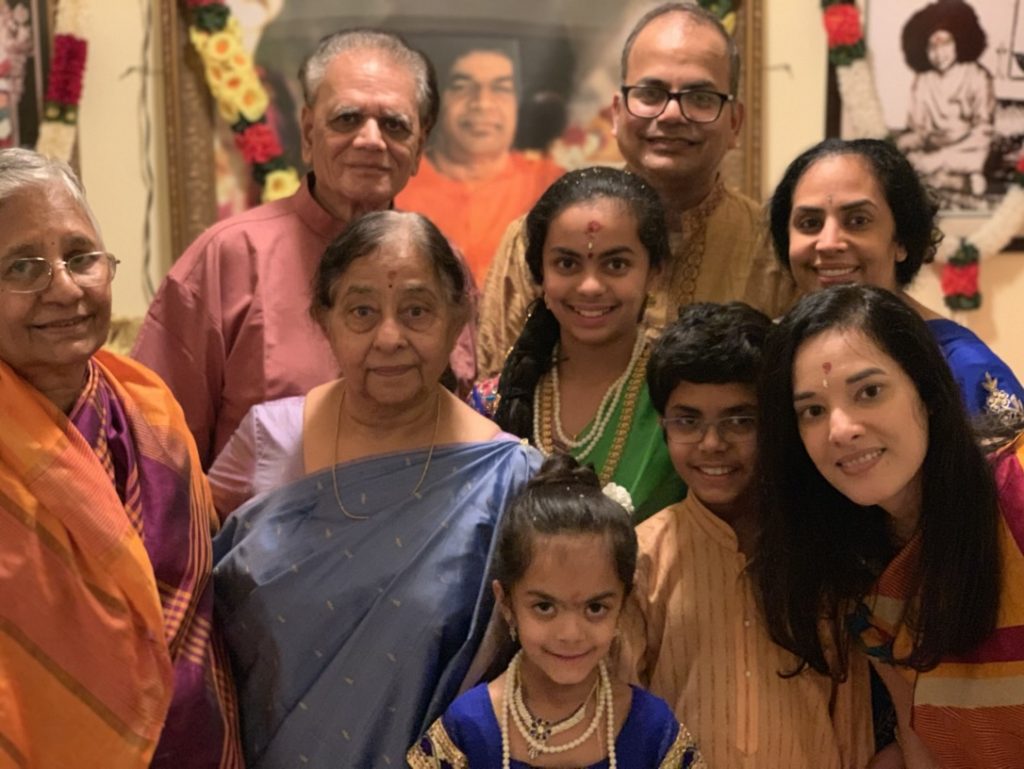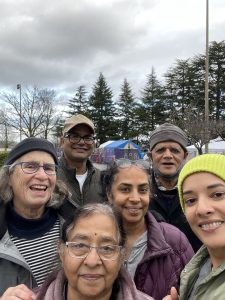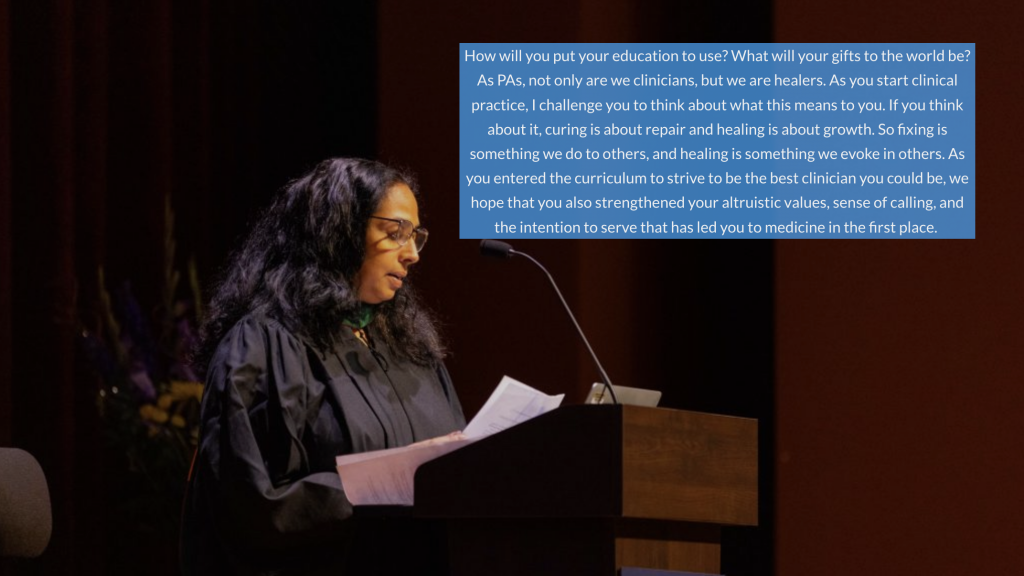It was tricky to find the time to sit down and chat with Amee Naidu, particularly given that she is a person who prefers to get up and go. She has been a faculty member at MEDEX Northwest’s Seattle campus since 2007. Building on her background in internal medicine, geriatrics, urgent care, and allergy, asthma, and immunology, Naidu has brought a steady and focused dedication to her work with MEDEX over the past 15 years. She is currently the MEDEX Associate Program Director of Student Affairs, chair of the Adult Medicine course, and coordinates the Basic Clinical Skills course.
Here’s what some of Amee’s MEDEX colleagues have to say about her:
Amee is a great leader. Her straightforward communication, her thoughtful inquiry, her absolute loyalty are invaluable to our program. … She is inspiring in her genuine and heartfelt care for the students and her passion for helping them succeed in their dreams of becoming a PA. … Amee is always so empathetic and wise and kind and completely open to new ideas.
See for yourself.

Let’s start at the beginning, Amee. What led you to a career in healthcare and medical education?
Amee: Since the age of 3, I had to visit the doctor frequently. I had very severe allergies and asthma, and I would visit the doctor’s office for treatment every two weeks. So I was introduced to medicine early on in that way.
That seems like a reason someone wouldn’t want to get into medicine, because it was too traumatic.
Amee: I missed many childhood opportunities, meaning I couldn’t do sports, I couldn’t go to parties. I just missed a lot because I was sick, and at that time, they didn’t have good medications such as inhalers; now you just whip out your inhaler, and you’re good to go! That is in most cases!
I had a near-death experience when I was seven years old. I went into the ER and was in acute respiratory distress. My pulse ox reading was 55%. Needless to say I was intubated and the whole nine yards. It’s a long story; my condition was touch and go for a while. At one point the medical team said, “We’ve done what we can, but it’s up to some higher source.”
Wow. But really you are suggesting that all of this is part of the reason that you did get into medicine, yes?
Amee:. I recovered even though the odds were against me and here I am. When you are given much, much is also expected- this is my belief, and with that comes a calling: I’ve got to do something.
When I was in college, I was sure I would attend medical school. I needed to go to medical school, I always knew that. But then when I got into my third year, as I was studying for the MCATs, I was thinking, “This doesn’t feel right to me; this may not be the path for me.” When I mentioned this to my friends who were studying with me, I would hear comments such as, “I don’t know what you’re talking about. Just keep studying.” Since I did put in the effort to prepare, I took the MCAT a couple of times, and then I realized, “It‘s not for me; I don‘t want to do this.” It was a really big deal for me, because this is what I thought I wanted my whole life, and being from an East Indian background, it’s encouraged anyway, right?
Where were you in school at this time?
Amee: I grew up in Houston, and attended Houston Baptist University as it had a good pre-med program. I often studied at my local tiny library in Katy, TX. One day, I found a book names Careers as a Physician Assistant. And a chill went down my spine. “This is really weird,” I thought. “What is this?” I opened it up, and right away I had a feeling,“This is what I want to do.”
Sounds like it re-channeled you to where you had left off with your MCAT decision to find a new path.
Amee: Yes. I talked to family members, and no one knew about PAs. This is in the late 90s … ’96, ’97. And then I went to my school to get some backup from my advisors, and no one had heard about the profession at all. All of my friends actually got into medical school, and I was the only one who left. Not left, really, but I just got my degree and didn’t go on.
So when and where did you end up in getting your PA education?
Amee: I was an EMT for a year, and then I went to PA school at Midwestern University in Chicago.
How was EMT life?
Amee: I liked it. I worked in the ambulance and in the ER. I tell my kids a funny story: one day they wanted me to drive the ambulance, and the paramedic made fun of me because I looked so scared, and my eyes were wide. So, they just said, “Forget it, you don’t need to drive the ambulance. We’ll do it.” My fear was that I was too short, and I would not be able to see well. That year for the holiday party, as a joke they gave me a pillow so that I could use it to sit on the next time I had the opportunity to drive the ambulance.
Previous medical experience of this sort is a requirement to be admitted to the MEDEX program, among others. Do you think this is an important prerequisite?
Amee: Oh yes. I had one year going in [to PA school], but I would recommend what we require at MEDEX, 2000 minimum, up to 4000 hours preferred. I don‘t think one year was enough.
It sounds like you got through PA school without the tremendous doubts that accompanied your medical school experience and came out the other side. And then what happened?
Amee: I worked in Houston in a rural area for my first job: Lake Jackson, Texas. It was the kind of place where the patients bring you okra and veggies from the garden.
A small clinic in that area.
Amee: Yes, an internal medicine clinic. I then moved back to Houston proper, and I did allergy/asthma for a long time because I obviously had a calling for that, and I really loved it. And then I moved here to Seattle in 2004. I got married—my husband was working in Seattle at that time.
And this is before joining MEDEX?
Amee: Yes. I joined here in 2007.
So how did that come about?
Amee: When I was in PA school, I always knew I wanted to teach. It just felt good to me. When I worked in North Bend in urgent care, I precepted MEDEX clinical year students. I asked the MEDEX students who would be a point of contact if I was interested in teaching, and the journey started from there! After that I worked at a geriatric clinic at Evergreen Healthcare in Kirkland, and then came to MEDEX.
Were you delaying that teaching impulse, or were you taking on students as a preceptor, or something else?
Amee: I wanted clinical experience before going into teaching. But I also had the opportunity to teach in a clinical setting. I had a student at Evergreen and coincidentally enough, this student failed the PANCE (Physician Assistant National Certifying Exam), and then I helped her get through that, and she passed it.
Sort of a precursor of your work with MEDEX.
Amee: Yes!
So once it became clear you wanted to teach, did you start looking widely for gigs, or was it MEDEX alone that appealed to you?
Amee: I was interested in MEDEX as I had heard great things about the program. I contacted Grace Landel, who was MEDEX’s Associate Director at the time. She was running a volunteer clinic in which MEDEX students participated. I went there one day to also volunteer and learned more about MEDEX. After several months, I also contacted Randy Cupp, who was a faculty member at MEDEX, and I asked if I could do a guest lecture. I did one in pulmonary medicine, and it really felt like a good fit. I felt as if I had come home. I told him, “When there’s an opening, let me know.” And six months later, there was!
This was 2007?
Amee: Yes. I interviewed in January of that year. I had three long interviews. They didn’t know me because I wasn’t a MEDEX grad. They preferred MEDEX grads at that time. But thankfully, I was hired anyway, and I started in July,
And was teaching all you had hoped it would be?
Amee: It gave me energy. All my other jobs drained me. I would go home exhausted. But I liked this one. I would go home “regular tired,” but not like “burnt-out tired.” I just loved interacting with students and seeing them graduate and fulfill the MEDEX mission. Some days are challenging. But I know being in academics is my calling.

What courses have you taught that you’ve enjoyed?
Amee: Well, when I came on board, they put me on two courses right away: Emergency Medicine and Tech Skills. When I joined MEDEX, I was three months pregnant with my first child. Anyway, I did that and then I moved into Adult Medicine. I was in a classroom Monday through Friday all day pretty much. I do prefer Adult Medicine over Emergency Medicine. I didn’t have much of a background in ER except for working in urgent care
We teach things like Basic Clinical Skills as a group, so I was also teaching that, along with the physical exams and such. That was in the fall quarter, and it kept me busy. Adult Medicine was in the other two quarters, and I would help cross-teach some of the other things. During the times we needed many faculty members to cover, I would go in and help.
Was there a point when you suddenly looked at yourself and went “Wow, I’m a professional medical educator. This is good.”
Amee: I don’t think it’s ever struck me that way. I just don’t think about it.
You just do it.
Amee: Yeah. I try to fulfill my assignments for the day. I believe we all have our own ‘curriculum of life’ that we have to fulfill. I just try to fulfill my day’s work. By curriculum, I mean it holistically, as in universal curriculum.
Holistic … universal … destiny … tell us more about what you mean.
Well, this might seem like a bit of an aside, but I co-direct a course called The Healer’s Art. It’s a program that was developed for physicians originally by Rachel Naomi Remen, and the University of Washington is the first institution to offer it to all health professional students. It is offered as an elective in the Fall of every year.
Basically, it’s a course that talks about the intangible in medicine. It talks about the individual’s wholeness, grief and loss, mystery and awe, and service. The Healer’s Art is an innovative Discovery Model curriculum in values clarification and professionalism. In the course, we put the students through mindfulness exercises. Through this technique, students answer some questions for themselves and then go into a small group and talk about them. Two faculty members and three or four students are in a very intimate, confidential space. People are sharing things that they’ve been through—really deep stuff. The idea is that through generous listening—just listening 100%, and not offering advice —the individual is healing themselves.
By accepting your entire being, when you see a patient, you’ll have much more compassion and empathy, and that patient will realize that you’re bringing your whole self in. This in turn gives the patient permission to bring their whole self in, and they’ll be more open during the visit.

What are your main areas of work with MEDEX currently?
Amee: I serve as the Associate Program Director of Student Affairs and am currently the interim APD of Academic Affairs. I’m also the chair of the Student Progress Committee. When we first started academic support remediation under student affairs, we were focused on students who did not pass the PANCE. Then we realized that it’s too late to begin academic support measures. We then introduced it during the clinical year, but that wasn’t good enough either. So we brought it into the didactic year.
From the Summer quarter (matriculation), if any student fails a major exam, they will be enrolled in tutoring. In addition, through the help of the student affairs and the didactic team, we will assess if additional help is needed ie study skills strategies, possible referral to DRS for a learning disability, referral to UW counseling, and other aspects that the individual is currently finding challenging.
How long have these concerted efforts been in place?
Amee: In 2010, we had about 11 students who couldn’t pass the PANCE. That was unusual. At that time, we didn’t let go of any students. We let them come back to the program again and again. For some of them, it was the third time around. Some of them only had one more attempt left on the PANCE—you get six attempts, and they had already failed five. So, at the direction of [MEDEX Program Director] Terry Scott, I developed a self-directed online curriculum that the students could work through.
So the focus was initially on the PANCE, but now it’s expanded to a more of a “get ‘em when they’re first in the program” approach, yes?
Amee: Yes.
Generally speaking, what’s at the heart of remediation of this sort?
Amee: I look at it as support in the form of compassion and empathy, really believing in the individual and building their self-confidence. It’s not what we stipulate for them, it’s how they feel. We ask ourselves, are we caring for our students holistically so they can dig deep and get the resources they need from inside of themselves?
It sounds like you are also showing these students that we, MEDEX collectively, care about them so that they can then in turn, care about themselves?
Amee: I think it’s true. Most students have already got this, but there are some who come in with a lot of stress from whatever experience they’ve had in their life. They come to MEDEX and we put them through a rigorous program. Sometimes it’s hard, so we try to step in and give them that TLC—a little bit of caring support.
And is it working?
Amee: Yes, but we still could be doing better. Many students are struggling. This could be in part from coming off a pandemic. On the part of MEDEX, we have integrated higher-level critical thinking measures for all courses. There is also an expectation that students need to put in the hard work and dedication to being successful in this program – short cuts do not work.
Why is it an ongoing issue?
Amee: Well, lack of study skills is an ongoing issue for sure. But I do think that remote learning that arose because of COVID has something to do with it. They’ve been online for so long, and now they’re adjusting to being back. We have a hybrid curriculum and students are now in class almost daily. Teaching methods also need to change because our students have changed. It’s a new generation.
Is the program’s responses to these challenges unique to MEDEX? Or is this sort of thing happening with all PA programs?
Amee: Remediation interest has always been a part of MEDEX. For many years, we were one of the few programs with a dedicated wing for academic support. Many programs didn’t have it. But now others are starting to integrate it more. I’ve noticed that programs across the country are seeing students who need help and academic support. It’s getting more prominent, and many programs are doing things differently. I haven’t heard of anyone just focusing on academic support, but we are one of the largest PA programs, so that could be why.
Where else do your efforts and focus fall these days?
Amee: My colleague Daytheon Sturges and I are interim leaders of the Academic Affairs unit, which oversees curriculum implementation at all five campuses. Part of our role is to develop course teams, assist in determining course content, and provide oversight of the exams.
So, in any given week, what do you and Daytheon do in this role?
Amee: Well, we build calendars, ensure that the course teams are solidified for the entire academic year and support course chairs in their planning for the next quarters. We hold sequencing meetings so that all campuses know what classes are needed each week of the quarter to ensure that all campuses are aligned. We’re also looking to make changes to the delivery of courses. The challenge is that all students learn differently and coming up with the correct recipe is key.
Is that newness good or challenging?
Amee: I find it a little challenging, because I like the creative work that I do in Student Affairs. I call it creative because each student is different, so when I talk to them, my plan is a little bit different for each of them.
So now, 15 years into your professional time at MEDEX, a senior figure and respected person here in the program, how do you see the future? What’s working and what needs to change?
Amee: Well, the MEDEX program has been around for a long time. It was built on a very firm foundation of the right intent and the right ethics by Dr. Smith. Any challenges we all face or that the program faces are just a means of making us stronger and better. However, our goal continues to be the same: keep educating PAs and bring quality health care to as many people as we can.
And so you feel that PAs are making a difference? That they play a significant role in today’s system of team medicine?
Amee: Our current health care system is team oriented. PA’s play a vital role in treating patients as well as increasing access to patient care. A patient could see five providers, any one of whom can effectively treat pneumonia for example. It’s not rocket science to get a chest X-ray or to diagnose and give an antibiotic prescription. But the patient who feels cared for, or who feels a sense of ease or a lightness after the visit, shows the art of medicine at play. That’s the patient who’s going to heal faster, because they were treated with compassion and empathy.


